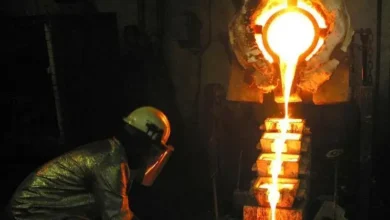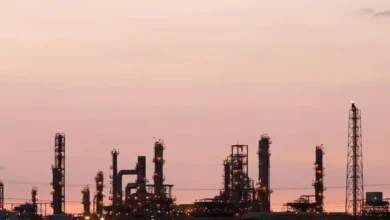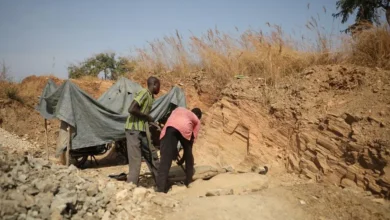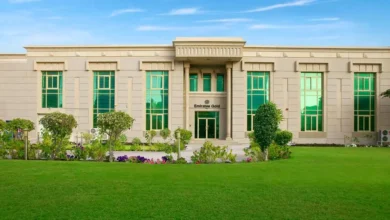
Africa hosts substantial resources of critical minerals. As a result, foreign mining companies are rushing to invest in exploration and acquire mining licences.
According to the 2023 Critical Minerals Market Review by the International Energy Agency, demand for lithium, for example, tripled from 2017 to 2022. Similarly, the critical minerals market doubled in five years, reaching US$320 billion in 2022. The demand for these metals is projected to increase sharply, more than doubling by 2030 and quadrupling by 2050. Annual revenues are projected to reach US$400 billion.
In our recent research, we analysed African countries that produce minerals that the rest of the world has deemed “critical”. We focused on lithium projects in Namibia, Zimbabwe, the Democratic Republic of Congo (DRC) and Ghana. We discovered these countries do not yet have robust strategies for the critical minerals sector. Instead they are simply sucked into the global rush for these minerals.
We recommend that the African Union should expedite the development of an African critical minerals strategy that will guide member countries in negotiating mining contracts and agreements. The strategy should draw from leading mining practices around the world. We also recommend that countries should revise their mining policies and regulations to reflect the opportunities and challenges posed by the increasing global demand for critical minerals.
Otherwise, African countries that are rich in critical minerals will not benefit from the current boom in demand.
What are critical minerals?
There is no universal consensus on what critical minerals are. Various regions and institutions have different lists of critical minerals, and the contents of these lists keep changing. For instance, Australia has classified 47 minerals as critical. The European Union has identified a list of 34 critical raw materials that are important to the EU economy and face a risk of disruption. The US critical minerals list contains 50 elements, 45 of which are also considered strategic minerals.
Each country or region has reasons why these minerals are classified as critical. For most western countries, minerals are critical if they
- are essential for a low carbon economy or for national security
- have no substitutes
- are vulnerable to supply chain disruption.
Lithium projects in Africa
At the time of our research there were 18 lithium projects at various stages, from early-stage exploration to production, across Africa. We focused on those in Namibia, Zimbabwe, the DRC and Ghana.
Our research revealed that conversations on Africa’s critical minerals had largely been shaped by geostrategic and economic opportunities arising from demand from western countries and China. Less attention was paid to the supply chains African countries should secure for current and future industrial applications.
We realised that these countries contributed little to global carbon emissions and their economies were not driven by industrialisation. The current inadequate infrastructure and policies to deal with the repercussions of lithium mining, for example, underscored the lack of a clear agenda. Lithium mining has impacts on communities, biodiversity, water sources and energy usage.
We also discovered that with over 30% of the world’s critical minerals deposits, African countries could become major global suppliers. They could also trade among themselves to avoid potential supply chain disruption or even monopoly by countries outside Africa.
Our research also highlights that emerging lithium mining in Zimbabwe, the DRC and Namibia is reinforcing and breeding new forms of corruption and illegality in the resources sector. Ghana is still in the early stage of setting up its lithium sector.
What is the way forward?
Africa needs stronger resources governance: regulations, accountability and transparency. Mining policies and regulations must reflect the opportunities and challenges of meeting global demand for critical minerals. Mining companies operating in African countries should adhere to leading mining practices and national regulations to minimise the environmental and social impacts of their operations.
The claim that it is urgent to acquire critical minerals must not be an excuse for African governments and foreign mining companies to bypass mining and environmental regulations. Rather, the urgency claims should give African governments greater power to make mining deals that will benefit people and the environment.
For these countries to use the economic opportunities arising, there must be incentives for local companies to mine and process lithium before exporting it. Processing of lithium in the country of origin would increase local returns, create jobs, and drive the growth of other sectors of the economy.
There is a need for coordinated efforts in Africa to build local capacity along the mining chain, from exploration to the market. There’s an opportunity also to build industries to support the global de-carbonisation agenda. An example would be manufacturing electronic vehicle batteries. In this way, Africa would not only be a source of raw materials, but a competitive source of low carbon products.
These are some key lessons for African countries.
James Boafo, Lecturer in Sustainable Development, Murdoch University; Eric Stemn, Lecturer, Safety and Engineering, University of Mines and Technology; Jacob Obodai, Postdoctoral Research Assistant, Edge Hill University, and Philip Nti Nkrumah, Researcher, Sustainable Minerals Institute, The University of Queensland
This article is republished from The Conversation under a Creative Commons license. Read the original article.




